Ageing Actively in Focus
By Shireen Walton, on 8 January 2019
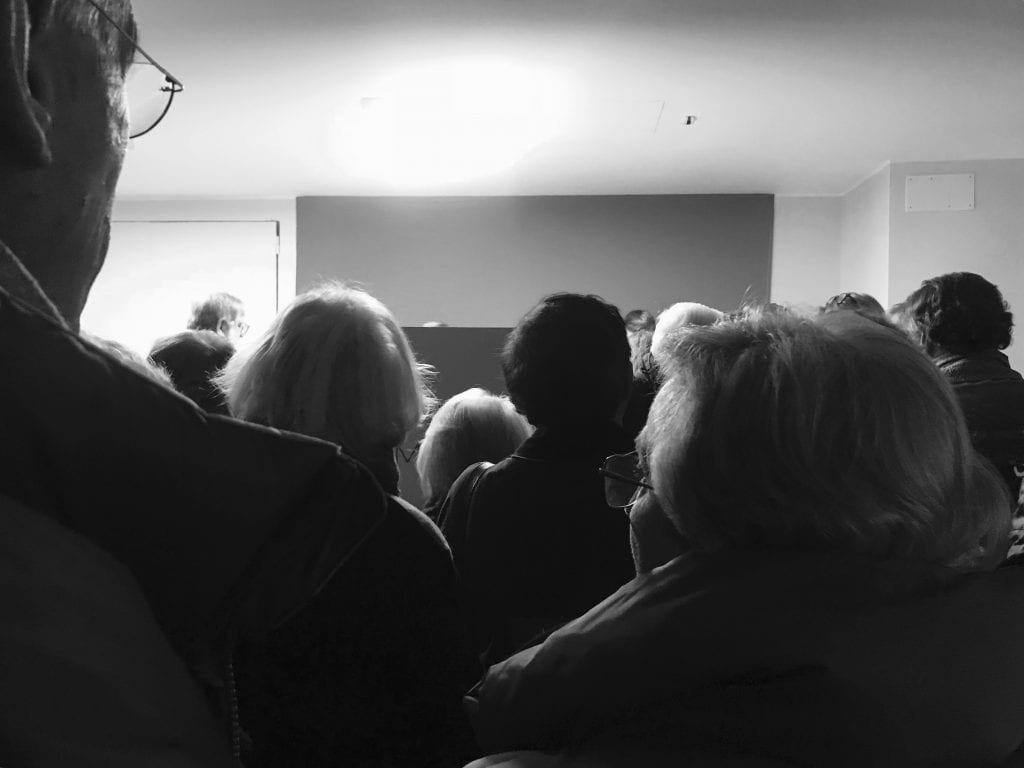
Books about ageing are currently in the spotlight. As discussed by Daniel Miller in an earlier blog post from February 2018, philosopher Kieran Setiya has looked at mid-life, from theoretical and practical perspectives. Another more recent work comes from journalist and author Carl Honoré, who in (B)older: Making the Most of our Longer Lives (2018) suggests a rethinking of ageing as a positive feature of the human experience, to be increasingly acknowledged and enjoyed more than ever before in history – a bonus not a burden.
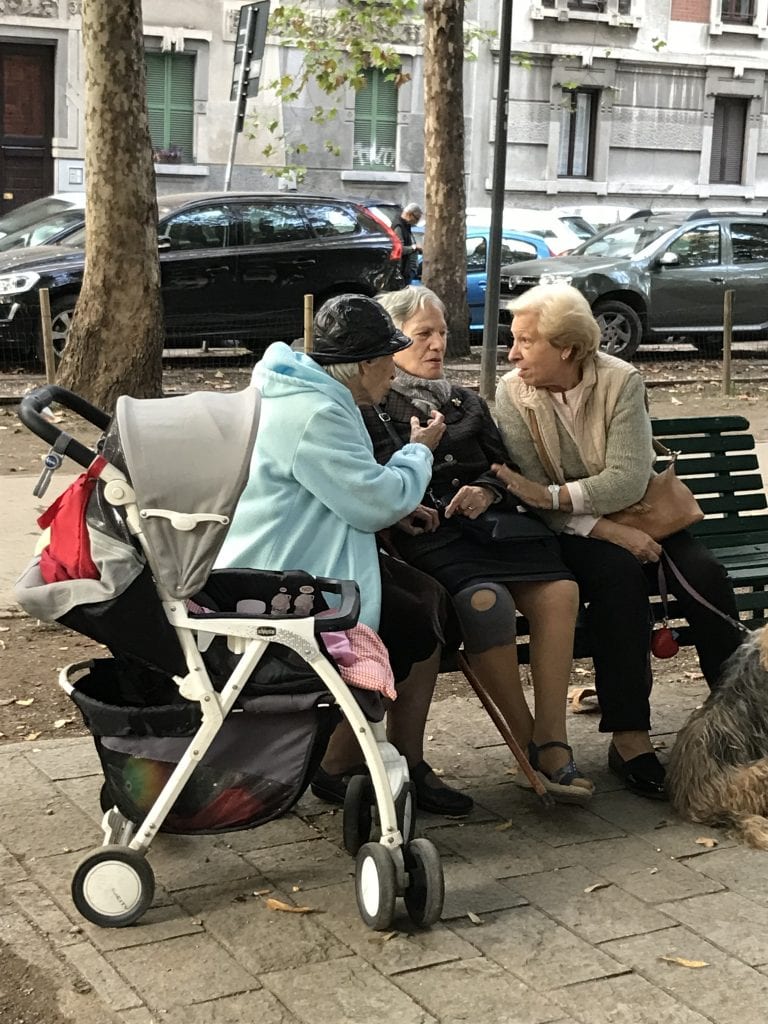
Image (CC BY) Shireen Walton
What these books have in common is a call to shift our thinking about ageing from a negative; to consider the positive aspects of later life, and to rebrand ageing along ‘active’ lines, recalling the European Union’s emphasis on ‘active ageing’. In Italy, a country with the second (after Japan) oldest population in the world, active ageing receives much public policy and media attention. One avenue through which I came in to contact with these initiatives is through Auser, a nation-wide NGO in Italy founded in 1989. The organisation has branches all over the country, and the Lombardy region headquarters is in Milan – located in zone 2 where I am based for my research. Auser’s mission statement is ‘promoting the active ageing of the elderly and enhancing their role in society’ from an inclsive perspective: ‘addressed primarily to the elderly, but open to relations of dialogue between generations, nationalities, different cultures.’
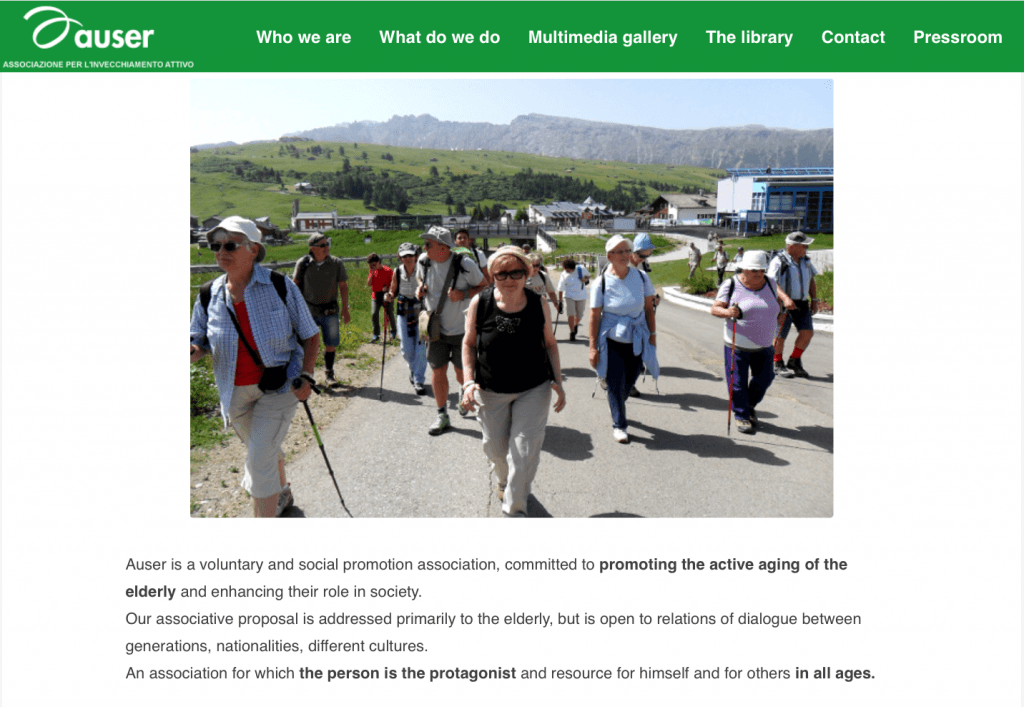
Auser website (English version)
Attending one of their meetings in Milan in December, I learnt about some of the main ways that ageing is being envisioned; towards skills-acquiring and sharing; a push towards enjoying life through ‘Active Welfare’, a concept the organisation defines as follows:
“Perhaps we will all have to work on building a model of “active welfare” based on financial resources adapted to social needs, built on an integrated system of subjects and public and private interventions, where through informal networks, the State, the Third Sector and individual citizens all work to build the social welfare of people, thus strengthening the concept of community and of social cohesion.” [Auser mission statement, website]
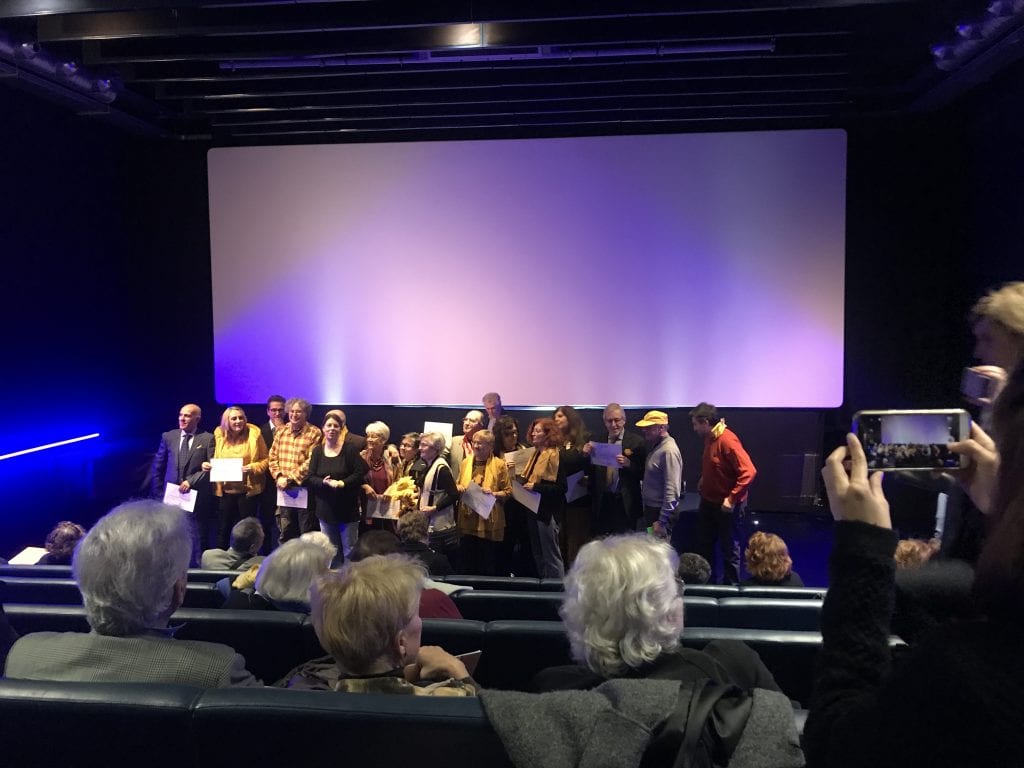
Auser December meeting, Milan December 2018. Image (CC BY) Shireen Walton
I do not want to detract from these optimistic and significant attempts to combat ageism, but as ethnographer, I have to also investigate, specifically, what possibilities are/could be available to who – locally, regionally, nationally? From the middle-aged Italians in this fieldsite, I hear a great deal about the devastating economic situation in Italy since the 2008 economic crash, which makes the idea of retiring for many seem nigh on impossible, particularly if sufficient structures of in-family care are not in place due to transnational family lives and financial pressures. Active ageing is is also difficult to envisage amongst some of the individuals, families and groups I am working with from countries such as Egypt, Afghanistan and Peru, many of who currently imagine their futures as continuous work(ing). Noor, 45, a schoolteacher from Alexandria, explains how she “hopes my children will take care of me, as I take care of them…if we are together, Inshallah, we will all be fine.” How, I wonder, will her 15-year old daughter take care of her Mother in years to come? What might potential future Grandparenting be like for Noor, as an Egyptian single Mother living in Milan in her 60s?

Image (CC BY) Shireen Walton
Ali, Hazara (44), from west Kabul works a number of jobs, including as a night-time lorry driver. His wife and children are currently in another northern European country with his wife’s family. Ali explained the following: “Of course for the future having money is fundamental, but it is also important if you are a helpful person, and do good things for people; for your family, for your people (Hazara), and for humanity.”
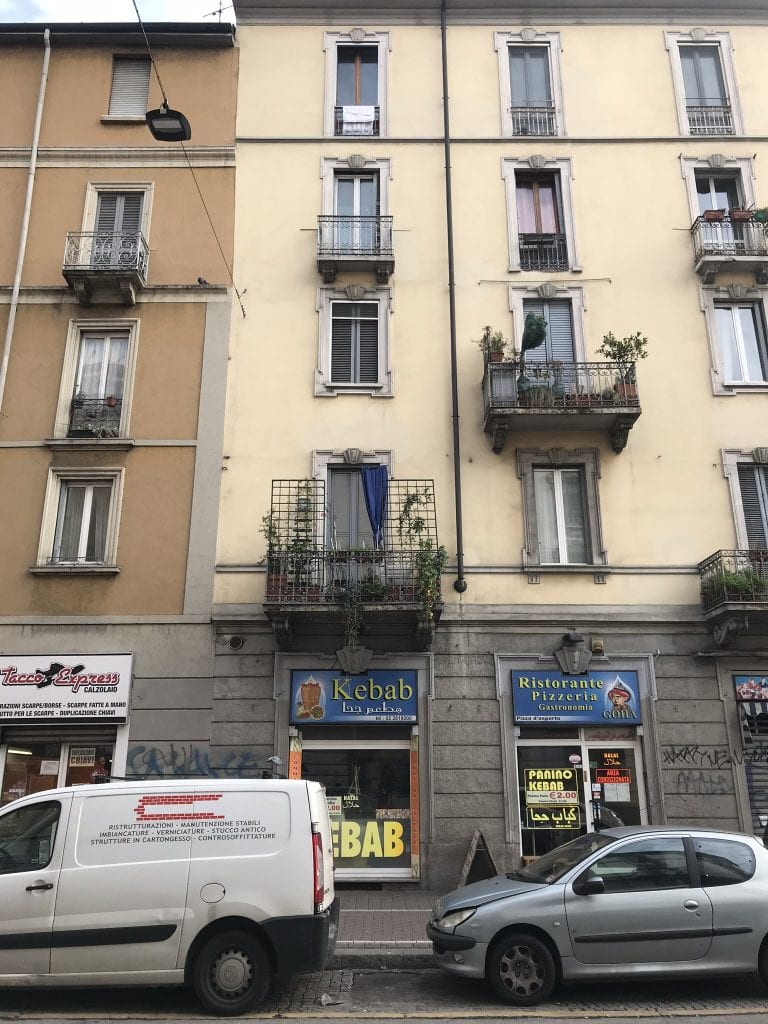
Image (CC BY) Shireen Walton
Noor’s investment in Italy seems to be long-term; her ever-strengthening language proficiency, her children growing up in Italy, attending school and speaking fluent Italian, the death of her parents in recent years back in Alexandria and her own severance from the rest of the family in Egypt means that she feels she is here to stay, intent on growing old near her children. For Ali, currently working in Italy and visiting his family when he can, the geographies of his and his family’s future remains unknown.
My ongoing task then is to consider how people are ageing in – and away from – their homelands, aided by smartphone connections, but in many cases lacking public voice, and/or not involved in many of the dominant culture’s organisations and groups dedicated to ageing, health, and wellbeing. I am continuing to explore about these issues in line with broader conversations about contemporary citizenship, the role of technology, the state and NGO’s, migration trajectories & biographies, and the ongoing categorisation of peoples into strategic kinds of subjects (Giordano 2014). The approach reflects my commitment to studying ageing across cultural lines here in Milan.
References
Giordano, C. (2014). Migrants in Translation: Caring and the Logics of Difference in Contemporary Italy. University of California Press.
 Close
Close




